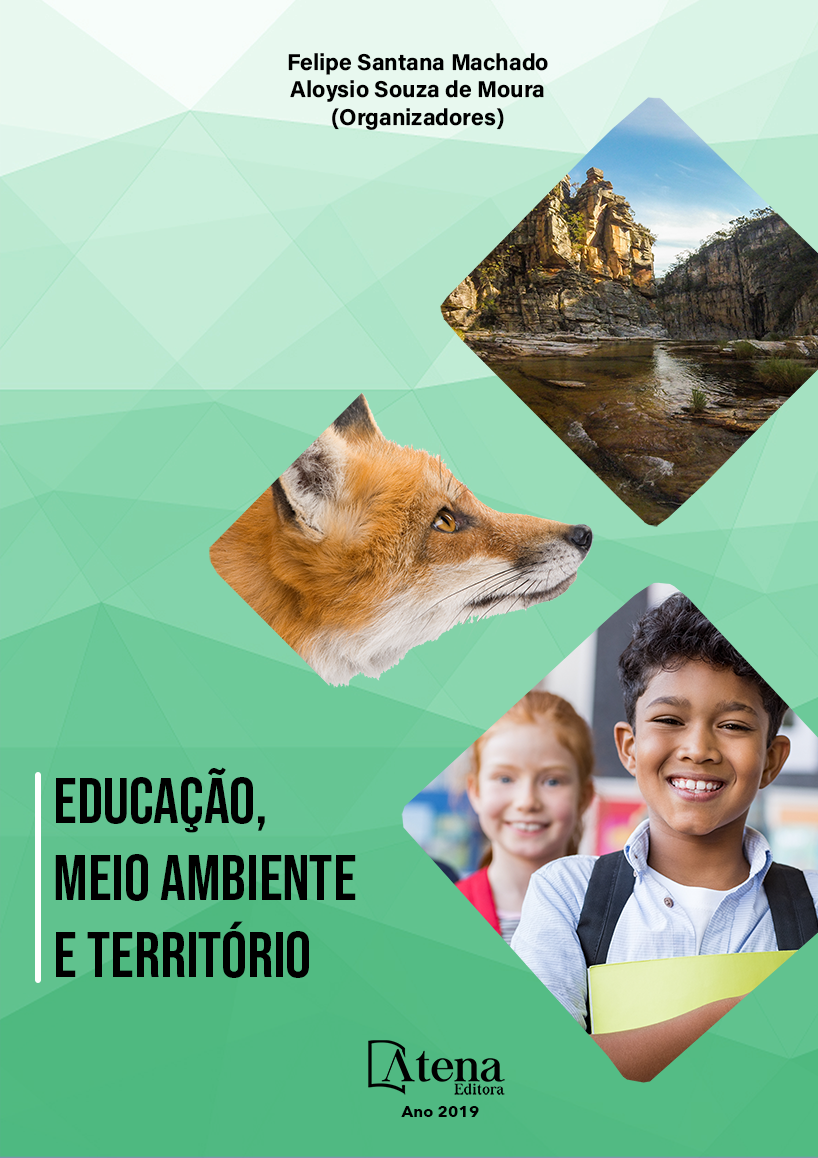
DESENVOLVIMENTO DE PRÁTICAS DIDÁTICO PEDAGOGICAS COMO INSTRUMENTO DE EDUCAÇÃO AMBIENTAL: UMA PROPOSTA DE PESQUISA PARTICIPANTE
A Educação Ambiental é um tema
transversal e deve ser trabalhado na Escola
de forma compartilhada e integrada a outras
disciplinas. Mas normalmente o que ocorre,
é uma forma única e pontual de trabalho,
ministrada em alguns conteúdos somente. Para
tentar minimizar isso, a pesquisa participante
busca sensibilizar, conscientizar e mobilizar os
alunos para que atuem em prol às questões
ambientais. Assim o objetivo deste trabalho foi
o de desenvolver atividades sobre Educação
Ambiental, mais participativa, para buscar uma
sensibilização e conscientização dos alunos,
vinculando teoria e a pratica. O local da pesquisa
foi a Escola Estadual Lauro Afonso Megale,
e a metodologia foi dividida em 7 etapas:
aplicação do pré-questionário; implantação
das lixeiras; palestra; oficina de separação de
resíduos sólidos; oficina de horta com garrafas
PET; palestra participativa e pós-questionário.
A maior parte dos alunos que participaram da
pesquisa era do sexo masculino e com idade
entre 11 e 13 anos, moradores da zona rural.
Muitos alunos, quase 80% deles disseram
conhecer a temática EA, mas os mesmo não
conseguiram argumentar sobre as atividades
de EA. Foi constatado a pouca participação da
escola frente a temática de estudo e quando
abordada era limitada a alguns conteúdos de
Ciências, Geografia e História. As oficinais
ajudaram os alunos a criar uma conscientização
através do diálogo e das intervenções realizadas
na escola, além de mudar a percepção dos
alunos sobre Educação Ambiental os alunos
aprenderam os tipos e o destino dos resíduos
sólidos e quais as medidas a serem tomadas
para diminuir os resíduos sólidos, Concluímos
que há necessidade de continuar o trabalho
de Educação Ambiental de forma integrada a
outras disciplinas, sendo os alunos os sujeitos
ativos e participantes desta temática.
DESENVOLVIMENTO DE PRÁTICAS DIDÁTICO PEDAGOGICAS COMO INSTRUMENTO DE EDUCAÇÃO AMBIENTAL: UMA PROPOSTA DE PESQUISA PARTICIPANTE
-
DOI: 10.22533/at.ed.42819210211
-
Palavras-chave: Escola, interdisciplinaridade, meio ambiente, 5R´s e Ensino fundamental.
-
Keywords: School, interdisciplinarity, environment, 5R’s and Elementary education.
-
Abstract:
Environmental Education is a
cross-cutting theme and should be worked on
in the School in a shared and integrated way to other disciplines. But usually what
happens is a unique and punctual form of work, given in some content only. To try
to minimize this, the participant research seeks to raise awareness, raise awareness
and mobilize students to act in favor of environmental issues. Thus the objective of
this work was to develop activities on Environmental Education, more participatory, to
raise awareness and awareness of students, linking theory and practice. The research
site was the Lauro Afonso Megale School, and the methodology was divided into 7
stages: pre-questionnaire application; waste disposal; lecture; solid waste separation
workshop; vegetable garden with PET bottles; participatory and post-questionnaire.
Most of the students who participated in the research were male and aged between 11
and 13 years, living in the countryside. Many students, almost 80% of them said they
know the subject EA, but they could not argue about the activities of EA. It was verified
the little participation of the school in the subject of study and when approached was
limited to some contents of Sciences, Geography and History. The workshops helped
students to raise awareness through dialogue and interventions at school, as well as
changing students’ perceptions about Environmental Education. Students learned the
types and fate of solid wastes and what steps to take to solid waste. We conclude that
there is a need to continue the work of Environmental Education in an integrated way to
other disciplines, and the students are active subjects and participants in this subject.
-
Número de páginas: 15
- Valdeir Aguinaldo Raimundo
- Natália Miranda Goulart
- Rafael César Bolleli Faria


